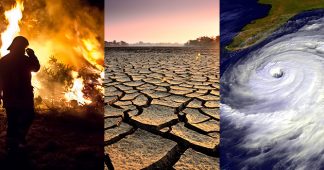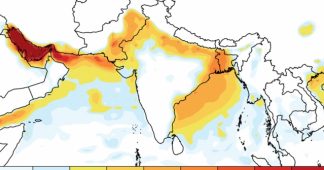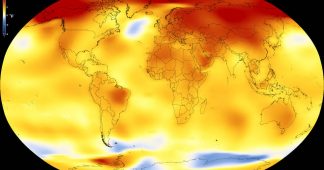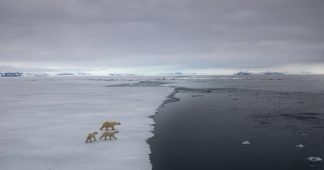Extensive historical data shows recent extreme warming is unprecedented in past 2,000 years
The scientific consensus that humans are causing global warming is likely to have passed 99%, according to the lead author of the most authoritative study on the subject, and could rise further after separate research that clears up some of the remaining doubts.
Three studies published in Nature and Nature Geoscience use extensive historical data to show there has never been a period in the last 2,000 years when temperature changes have been as fast and extensive as in recent decades.
It had previously been thought that similarly dramatic peaks and troughs might have occurred in the past, including in periods dubbed the Little Ice Age and the Medieval Climate Anomaly. But the three studies use reconstructions based on 700 proxy records of temperature change, such as trees, ice and sediment, from all continents that indicate none of these shifts took place in more than half the globe at any one time.
The Little Ice Age, for example, reached its extreme point in the 15th century in the Pacific Ocean, the 17th century in Europe and the 19th century elsewhere, says one of the studies. This localisation is markedly different from the trend since the late 20th century when records are being broken year after year over almost the entire globe, including this summer’s European heatwave.
Major temperature shifts in the distant past are also likely to have been primarily caused by volcanic eruptions, according to another of the studies, which helps to explain the strong global fluctuations in the first half of the 18th century as the world started to move from a volcanically cooled era to a climate warmed by human emissions. This has become particularly pronounced since the late 20th century, when temperature rises over two decades or longer have been the most rapid in the past two millennia, notes the third.
The authors say this highlights how unusual warming has become in recent years as a result of industrial emissions.
“There is no doubt left – as has been shown extensively in many other studies addressing many different aspects of the climate system using different methods and data sets,” said Stefan Brönnimann, from the University of Bern and the Pages 2K consortium of climate scientists.
Commenting on the study, other scientists said it was an important breakthrough in the “fingerprinting” task of proving how human responsibility has changed the climate in ways not seen in the past.
“This paper should finally stop climate change deniers claiming that the recent observed coherent global warming is part of a natural climate cycle. This paper shows the truly stark difference between regional and localised changes in climate of the past and the truly global effect of anthropogenic greenhouse emissions,” said Mark Maslin, professor of climatology at University College London.











